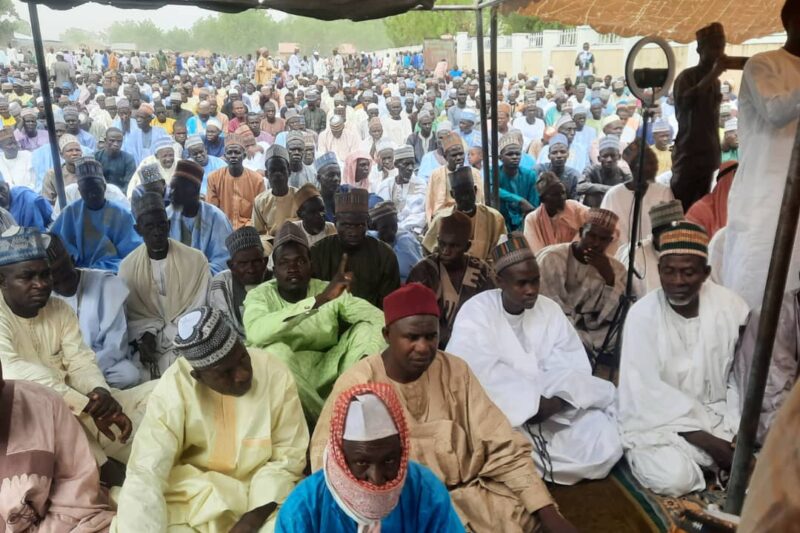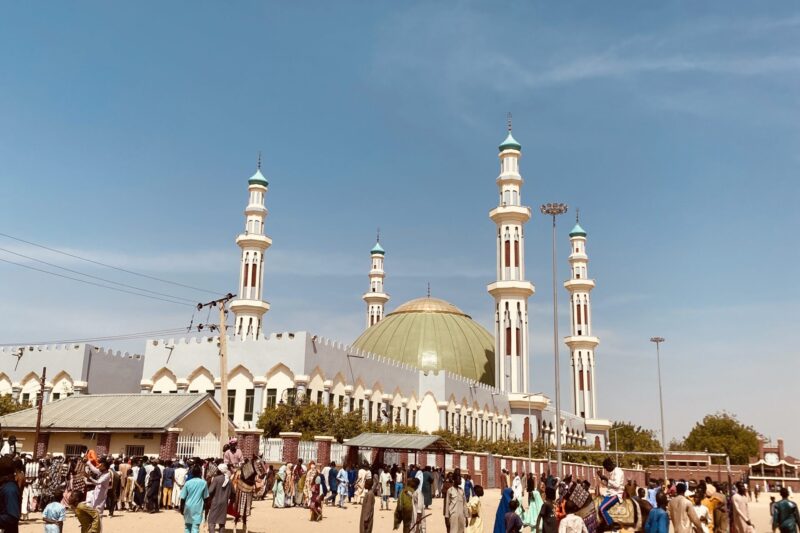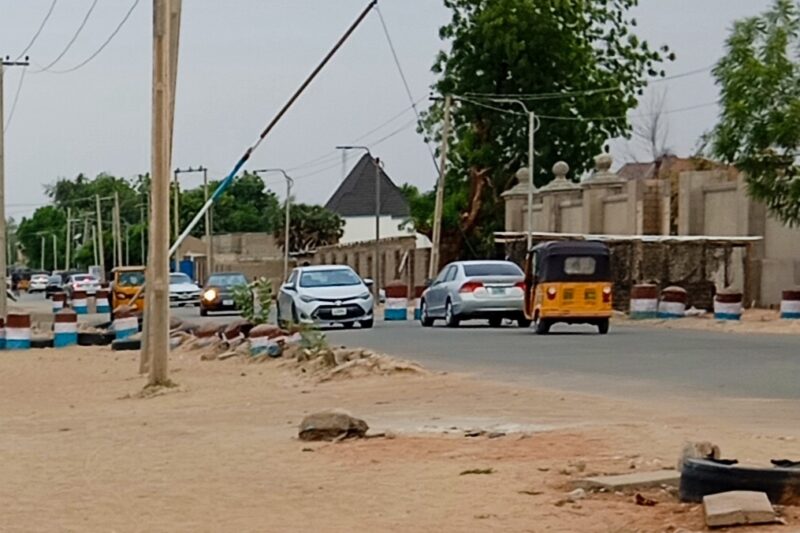Rather than be tortured and killed by extremists, a now former militant says his fear led him to become an insurgent himself.
The man, from Konduga in Borno State, said he had willingly joined the Jamā’at Ahl as-Sunnah lid-Da’way Wa’l-Jihād (JAS), commonly referred to as Boko Haram, but he had willingly left them too.
He told RNI reporter Fatima Grema Modu what his life was like with the JAS and why he had decided to quit the extremist movement and surrender to the government in Banki, in the Bama Local Government Area of Borno State.
“I am a son of the soil. I was born in Konduga and raised in Maiduguri. But it was not safe to stay there. Constant attacks by insurgents made life in the city a nightmare. Many people were being killed, tortured, kidnapped, abducted and raped,” the man, who cannot be identified for his own protection, said.
“No one invited me or forced me to become a member of the JAS. I joined of my own free will. I think I was influenced by the conflict around me. I believed I would die if I stayed, so instead of being killed I decided to join them.”
He said although he was not appointed a leader of any kind in the JAS, he was rich and had about 7 million naira, which he used to do business.
He admitted that he and his “brothers” in the JAS had attacked many places, many people.
“We performed too many ungodly acts,” he said.
He was able to move freely in the bush because he had joined the movement voluntarily.
“No one wanted me to quit the dreaded movement. I was not forced to leave. I did it because I felt that I was doing a disservice to humanity,” he said. “No one tried to tell me that I was not on the right path. It came from deep inside after much reflection.”
He said: “I believe it was the Almighty Allah who guided me. I realised I was with the wrong people and doing bad things even though the JAS members believed what they were doing was right.”
He said: “I stayed with JAS for four years. But, suddenly, I became disinterested with the movement. In the last two months I was with them I began to feel very remorseful for what I had done, the terrible acts I had taken part in and I knew I had to leave. It was as if a divine light was guiding me. It was Allah who was telling me it was time to leave,” the man said.
After leaving the JAS, he moved to Yaoundé, the capital of Cameroon, where he spent a year.
“I spent seven months in Maroua and nine months in Gamdure in Cameroon. Then I spent eight months in Gamboru and Kolfata. When I moved to Banki, I surrendered to the military. Soldiers took me to Bama and then to Maiduguri. I spent 18 months at the Giwa Barracks, a military detention centre in Maiduguri. I slept in a comfortable bed and they did not torture or mistreat me,” the man said.
“I was then taken to Gombe State, where I spent nine months in a rehabilitation centre. Afterwards I went back to Maiduguri.
While he was in the rehabilitation centre he received good training, which he said had kept him in good stead. “I was taught to be a barber and I know how to cut hair. I also became a tailor and I know how to sew clothes. I became a cobbler and can make shoes and I also learnt how to run a laundry. But, alas, I am jobless now.”
The former combatant said he had married while he was in Maiduguri before he joined the JAS. “We are still together. A woman’s place is anywhere her husband resides.”
Once he had been certified by the government as a “repentant insurgent” he went back to Konduga, in the local government area of the same name.
“The people of Konduga happily accepted me back even though I had left 11 years before, long before I joined the JAS. My friends from Konduga even visited me while I was in the Gombe rehabilitation centre.”
He said whenever anyone asked him where he had been for so long, he told them he had been in Lagos.
“It is only when you know someone whose relative or brother has been wounded or killed by the JAS that you realise the challenges they face. I still feel remorse for those families to whom I caused hurt. No one knows I was with the JAS and they do not know what I was doing for all the years. Still, when people ask, I always tell them I was in Lagos.”
“I will always regret the time I wasted as a member of JAS and especially the ungodly acts I took part in. I wish I had obeyed my parents and built a business for myself. I wish other members of the JAS would quit. If they leave they will find peace for themselves and help to bring about lasting peace in the state,” he said.
“And my message to the young people is: Please do not to be lured into the acts of disgrace performed by insurgents. You will regret it.”








